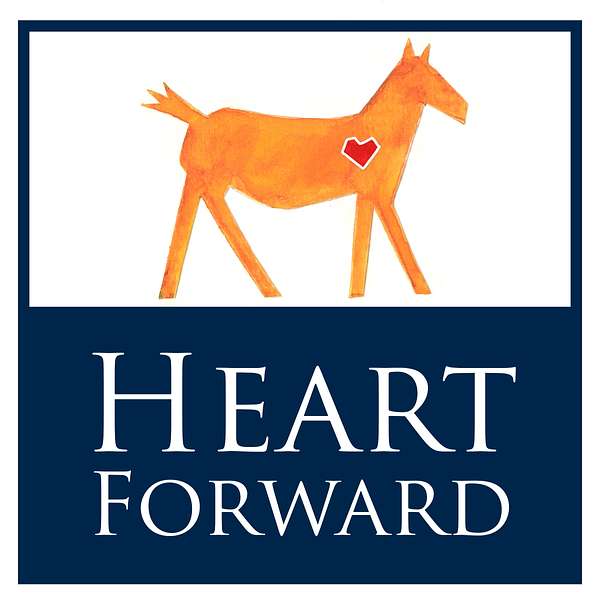
Heart Forward Conversations from the Heart
The American mental health system is broken beyond repair. Rather than trying to tweak a system which fails everyone, it is time to commit to a bold vision for a better way forward. This podcast explores the American system against the plumb line of an international best practice, recognized by the World Health Organization (WHO), in Trieste, Italy. The 40-year old Trieste model demonstrates how a community-based treatment system upholds the human rights of the people served. The Trieste story is anti-institutional and models the therapeutic value of social connection. Topics will address contemporary challenges in the American failed mental health system as contrasted with the Italian approach toward accoglienza – or radical hospitality – as the underpinning of their remarkable culture of caring for people. Interviews will touch upon how the guiding principles of the Italian system – social recovery, whole person care, system accountability, and the human right to a purposeful life – are non-negotiable aspects if we are to have any hope of forging a new way forward in our American mental health system. This podcast is curated and hosted by Kerry Morrison, founder and project director of Heart Forward LA (https://www.heartforwardla.org/). Heart Forward is collaborating with Aaron Stern at Verdugo Sound as the technical partner in producing this podcast (https://www.verdugosound.com). Kerry Morrison is also the author of the blog www.accoglienza.us.
Heart Forward Conversations from the Heart
What does it take to provide housing that heals? A conversation with Michael Weinstein and Lynda Kaufmann of Psynergy
Psynergy operates four facilities or campuses – Morgan Hill is the first one, which is discussed in the interview. In addition, they operate Greenfield Monterey County, Tres Vista supported living at the Morgan Hill campus and Nueva Vista in Sacramento. On deck is the proposed Vista de Robles campus in Sacramento.
In this interview, we talk with Lynda Kaufman who is the Director of Government and Public Affairs and Michael Weinstein, Chief Financial Officer, who is one of the founders of Psynergy.
You will hear about how Michael Weinstein cultivated his vision of what a congregate living community should offer – a high standard of cleanliness, nutritious fresh food, an attractive and safe living environment, access to medical and clinical supports, an orientation toward creating a place of healing – and how that unwavering vision separates Psynergy from other adult residential facilities we might visit in the state today.
Lynda will take you on a visual tour of the campus at Morgan Hill. Contrasted with tours that some of us have taken of board & care environments where the properties are held together with duct tape and bubble-gum, and residents sit in the courtyard all day long, smoking cigarettes and sipping from 7-11 Big Gulps, Psynergy’s campus offers a striking contrast. You’ll hear about a living room with leather couches for residents to enjoy, a courtyard with a barbecue and gazebo to gather outside, and a hospitality desk in the lobby. How do they accomplish this? Lynda and Michael will share some insights into their business model.
The Psynergy leadership team is interested in talking with people who might be interested to invest in this type of “housing that heals” in other CA communities. If you want to start that conversation, reach out directly to Lynda at lkaufmann@psynergy.org.
Reports on the state of the Board & Care system in California
State of California
CALBHB/C Issue Brief: Adult Residential Facilities (calbhbc.org)
Vanishing board-and-care-homes leave California residents with few options - CalMatters
LA County
1074299_h.12.18.2019_Report-AgendaofNovember12_2019.pdf (lacounty.gov)
LA City
https://clkrep.lacity.org/onlinedocs/2020/20-1203_misc_2-4-22.pdf
General
For every bed lost a person is displaced: California’s continuing board & care crisis – Accoglienza: lessons for America
No Time to Waste: An Imminent Housing Crisis for People with Serious Mental Illness Living in Adult Residential Facilities